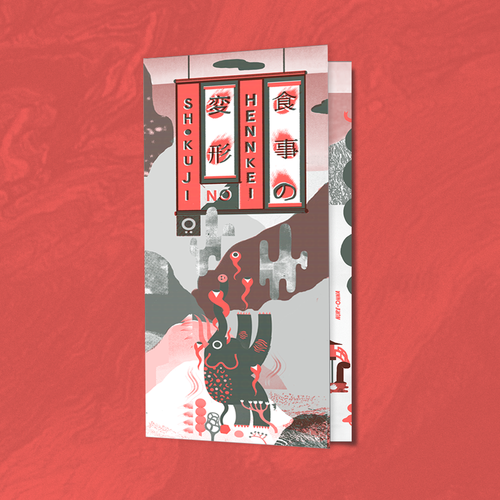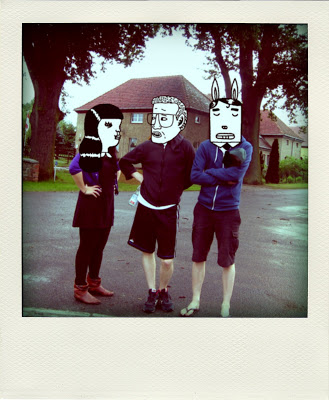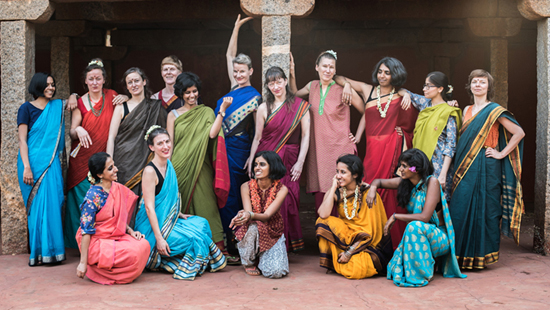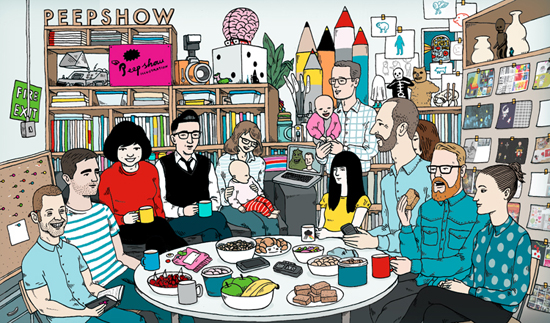Collectives: The Importance of Collaboration

Shokuji no Hennkei, LÖK ZINE
There are many different attitudes towards collectives, to get a more accurate idea of how they function and succeed, Allie Oldfield talks to UK based and overseas collectives asking why they think collaboration is important and what it means to them.
It’s true that working together helps with motivation, introduces fresh ideas and eliminates creative isolation. It also introduces compromise, constructive criticism and new perspectives that working alone can’t achieve. Here’s what LÖK Zine, Nous Vous, Biografiktion and more have to say about collaborating:
LÖK Zine – Italy
Collaboration is necessary to understand your limits. It’s real lonely work as freelance illustrator or comics author, so to work in a team is a breath of creativity and it’s a way to develop bigger projects. Being in a collective is helpful as it’s a way to confront each other and grow up, to face the problems with working with people that have different ideas and discover solutions from another point of view.

LÖK ZINE
Nous Vous – UK
Collaboration is compromise. Compromise is a wonderful thing to learn to work with. It broadens your thinking and pushes your practice toward more fruitful, friendly and accessible pastures without inhibiting exciting approaches and innovative thinking. It’s a great support mechanism in a large numbers of ways. Working together makes it possible to achieve more than you could individually. The way we like to be is a bit of an amorphous gathering. A collection of people who collaborate on projects, whose structure and collaborative practice constantly evolves.
Recently we’re turning our attention more towards becoming a publishing house. We respond to where our personal interests and practice is leading and talk about how we can keep collaborating through the our ever shifting focus. Mostly it’s about finding that common ground and supporting each other – making sure we find ways of supporting each others practice without encumbering ideas or new directions. Nous Vous is a bit of an umbrella for promoting and supporting this type of activity.
Biografiktion – Germany
If you only work on your own you can start to repeat yourself. It is important to have an honest view form the outside and different ideas. Even if you work on your own project the members of you collective can help you make it better just by talking and thinking about it together. The advantage of working closely and even on a longer term together is that more and more understand you understand your ways of thinking as well as the ones form your collective members. You can contribute and get very smart and sharp criticism.

Biografiktion
Spring Magazine Collective – Germany
We inspire each other. We support each other during the working process by giving comments, sharing thoughts. The sum of all our efforts creates more than each of us could obtain by themselves. We divide specific tasks to different members, we call them magniloquent ministries, like the financial minister, the press minister. But we have no chief editor. All questions regarding the contributions, guest artists, members, topics are decided democratically at grass-root level. We collaborate also by organizing at least one exhibition per year and take part at comic fairs. Most of us live in Hamburg another smaller group in Berlin. Both groups meet regularly. From time to time we are asked to contribute to other illustrative/artistic projects like designing a stage for TV Show or to illustrate plastered arms for an editorial selling watches in a fashion magazine.

Spring Magazine Collective
Clay Collective – UK
We all have different areas of expertise, we are able to manage a space and take on projects and jobs that would be a gigantic amount of labour if taken on by just one person. Divided by 12, they are much more manageable. You learn a lot from your collaborators. In a city as expensive as London you have to think creatively to get by, when many artists and practitioners find themselves dedicating themselves disproportionately to unfulfilling work in order to pay expensive rent on flats and studios it makes more sense to divide work and space between a group – it’s more efficient, why buy 12 pieces of equipment when you can share 1, why do 12 tasks if you can do 1 each?
Also, while couple of us are full-time artists and potters, most of us have full-time jobs in addition to the collective. We all work in the art sector but all in very different roles, which has actually proven to be a really positive thing when it comes to what we can all individually bring to the collective. The aim is that we all contribute to and benefit from being part of the collective, we are stronger and have more opportunities together. From the outset, it was important to us all the ‘collective’ element must remain at the forefront, rather than creating a shared studio where everyone solely works on their own practice. We all invest the time needed to keep the space functioning. There are endless jobs to be done so we all pitch in! At the risk of sounding terribly soppy, it’s like our baby.
Peep Show – UK
It’s very easy to get stuck in your own way of way of doing something, so it’s always good in life to be in a position to see things from a different perspective. Illustrators trade off their own personal visual language, which has often taken years to craft. As a result it can be very hard to let go of or let someone else pull it apart. One of the main strengths of Peepshow is that everyone is willing to step away from what they normally do and undertake a different role. In some ways that was a big motivation to start with – to learn from each other and be able to try out something new.
It’s also important that as a collective we recognise that we all have very different approaches to our individual practices so it’s also about understanding and giving each other space and encouragement. When we started back in 2000 their wasn’t any real expectations of getting work as there was no clear ‘career’ path so really we had nothing to lose.

Peepshow Collective
In our next ‘Collectives’ article, we discuss the challenges collectives face and how they over come them.
With thanks to Tim Blann for his research and contribution to this article. Special thanks to Paul Paetzel of Biografiktion, Luke Best of Peepshow, Stephanie Wunderlich of Spring Magazine Collective, Math and Jana of Tieten Met Haar, Jay Cover of Nous Vous, Elisa Caroli of LÖK Zine, and Sophie and Emma of Clay Collective for their responses and insight.
Back to News Page
